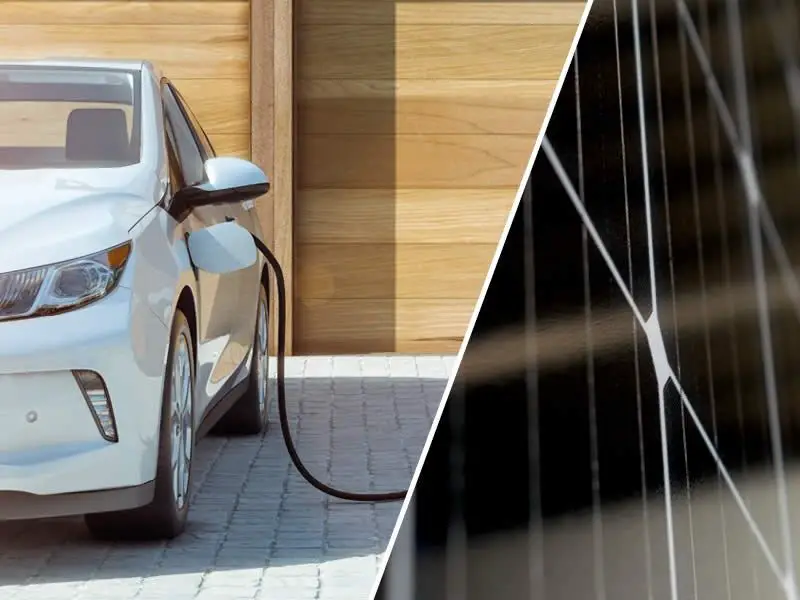Is solar power the future of electric vehicles?
More automotive companies that previously produced only gasoline-powered vehicles have shifted focus to manufacturing EVs for your daily use,


More automotive companies that previously produced only gasoline-powered vehicles have shifted focus to manufacturing EVs for your daily use, with Tesla leading the way. If you already own or look forward to purchasing an EV, then having an efficient and effective solution to charge the car battery at home is beneficial and fulfilling. You’ve definitely got to choose whether to charge the battery off-grid or install a solar power system for the same purpose. Among other home solar system benefits, EV owners stand to benefit monetarily from installing solar in their homes.
Electric cars becoming mandatory across the globe due to their positive environmental impacts. A typical charging station is still an option for EVs, but it utilizes 40%-60% of national grid power to charge a vehicle manufactured from non-renewable energy. Solar-powered EV charging stations are the solution to bring that percentage down to zero. Not only is it beneficial for the environment, but it is also a significant benefit for fleets.
1. Save on Energy Costs
The cost of electricity has really gone up, in Kenya household unit is 25.330 shillings(0.206 U.S dollars) while a commercial unit is 17.870 shillings (0.145 U.s dollars) That cost is predicted to continue increasing over the coming years. Installing a solar system will help cut your monthly power bill by more than half. The initial cost to install solar systems into your facility may seem intimidating, but the long-term savings make up for the upfront costs.
2. Government Incentives and Tax Credit
The government offers a federal investment tax credit for the installation of commercial solar panels. A 26% tax credit will be provided for solar panel systems whose construction commenced before December 31, 2022. After 2022, a 22% credit will be provided, and 10% for those commencing in 2023. You can learn about your fleet’s eligibility by visiting the US Department of Energy’s website.
3. Convenience
There are many conveniences when it comes to a solar charging system:
- The installation requires no permitting, no construction, no electrical work, and no utility bill.
- One solar panel can charge up to multiple vehicles at once
- EVs can be charged during power outages.
- EVs can park underneath the unit, so there is no loss of parking spaces.
4. Zero Carbon Footprint
A solar EV charging station guarantees a 100% carbon-neutral footprint. Governments are asking for drivers to use EVs since they have a lesser environmental impact than internal combustion engines. Despite EVs being more environmentally friendly, they still use fossil fuels and other non-renewable energy to use the grid for charging electricity. EVs still reduce environmental impacts but using an EV charging station reduces them to zero.
5.Net Metering
Worried about not charging your vehicle’s battery during the day because you spend it at work? Worry no more! You can still profit from net metering. This method works by allowing you to pump the excess energy produced by solar panels during the day into the grid for equivalent energy credits off-grid when you need it. For example, say your power panels pumped a total of 10 kWh into the grid during a typical day. During the evening or night when you’re back home, you can draw back your 10 kWh of electricity from the grid to charge the battery free of charge. And if the full 10kWh is not pulled back, you sell the remaining supplied power to the electricity company for profits.




